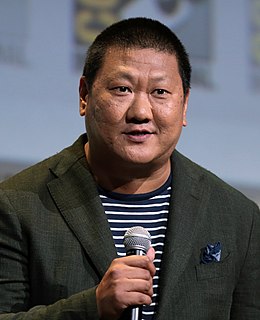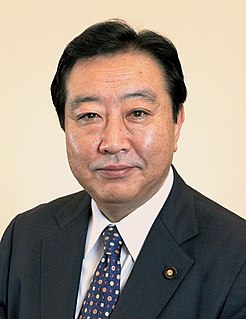A Quote by Toshihiko Fukui
The direct investment of Japanese businesses to East Asian economies accelerates the reallocation of their production bases. Consequently, between Japan and the other East Asian countries, both exports and imports are growing substantially.
Related Quotes
Both in the US and throughout the world, there needs to be a growing presence of public development banks. These banks would make loans based on social welfare criteria - including advancing a full-employment, climate-stabilization agenda - as opposed to scouring the globe for the largest profit opportunities regardless of social costs.... Public development banks have always played a central role in supporting the successful economic development paths in the East Asian economies.
The typical big Japanese company has somewhere between a third and 40 percent of its revenues coming from developing countries, and about a third of Japan's exports are also to the emerging countries, so in a strange way, Japan, which has very little internal growth, its big companies are a good way to play the emerging markets.
Three women were brought to the Singapore General Hospital, each in the same condition and needing a blood transfusion. The first, a Southeast Asian was given the transfusion but died a few hours later. The second, a South Asian was also given a transfusion but died a few days later. The third, an East Asian, was given a transfusion and survived. That is the X factor in development.
I think East Asian countries, I think they're very fortunate to have Buddhism survive as a strong influence because right from the time when Buddha himself, 2,500 years ago, made the point about the importance of education, and the word "Buddha" also means enlighten[ed] or educated. So all the Buddhist countries, not only Japan and Korea and China and Hong Kong and Thailand but also even Burma and Sri Lanka, had a higher level of education.
China is the center of the Asian energy security grid, which includes the Central Asian states and Russia. India is also hovering around the edge, South Korea is involved, and Iran is an associate member of some kind. If the Middle East oil resources around the Gulf, which are the main ones in the world, if they link up to the Asian grid, the United States is really a second-rate power. A lot is at stake in not withdrawing from Iraq.



































